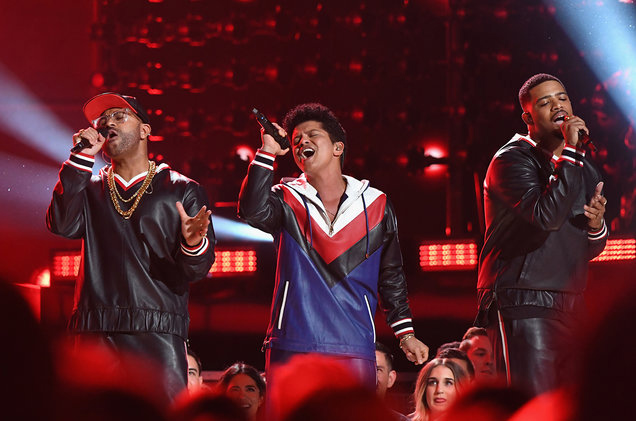Opinion: Are the Grammys trying too hard?
Music’s biggest night is almost here. The Grammy nominations were released last week, and several of this year’s nominees have created quite the conversation.
Last year, Adele controversially beat out Beyoncé for Album of the Year, the night’s top honor. The year before, it was Taylor Swift beating out Kendrick Lamar, and the year before that, Beck over Beyoncé. For years, the Grammys have received backlash for allegedly favoring white artists over black artists, and it’s easy to see why. Although the Recording Academy is notorious for their traditionalist values and safe choices, this year, things are a little different.
After Adele herself disagreed with her win over Beyoncé last year, the Grammys ensured that this year’s list of nominees would be far more inclusive. Luis Fonsi and Daddy Yankee’s “Despacito” could become the first Spanish-language song to win for Song or Record of the Year, while the latter category consists entirely of non-white artists (with the exception of Justin Bieber, who is featured on “Despacito”). Jay-Z’s “4:44” also racked up eight nominations, the most for any artist this year.
The Album of the Year category, meanwhile, does not include a white male artist for the first time in Grammy history. Although Ed Sheeran’s “÷” (pronounced “Divide”) was speculated to be a big contender, it was omitted entirely from the biggest categories, instead only receiving nominations for two pop awards. In fact, Lorde’s “Melodrama” is the only work by a white artist to be nominated in the category this year—last year, three of the five nominees were white.
While some may view this as a bold move on the Grammys’ part, it’s actually little more than a new way of playing it safe. Though it may seem like the Recording Academy has broadened its horizons, in reality, much of it is simply overdue reparations for years of backlash. Excluding artists like Sheeran, whose “Shape of You” spent 12 non-consecutive weeks atop the Billboard Hot 100, from major categories may just be an easy way to avoid having them win, which would subsequently recreate the issues of previous years.
This is not to say that the Grammys shouldn’t be more inclusive. While the diversity shown in this year’s pool of nominees is outstanding, the Academy’s motives are questionable. Many of the nominees don’t truly represent the year in music, since more prominent white acts such as Sheeran, Harry Styles and Swift were snubbed in the general categories, a decision that feels too deliberate to be justified. Hip-hop and rap have dominated most of these categories, while genres like country have been excluded entirely, creating a lack of genre diversity.
Rather than becoming more inclusive, it feels as though the Grammys are simply using this year’s more diverse group of nominees to seem inclusive. To contrast previous years’ predominantly white nominee pools, the Grammys have shifted to the opposite side of the spectrum with the large number of black and Hispanic nominees. This is remarkable, but again feels unbalanced.
In efforts to please skeptical audiences, the Grammys have lost focus on the merit of an artist’s work for the sake of making a social statement. But until the judges can look past someone’s race in the nomination process, they’re just repeating the same old mistakes.








